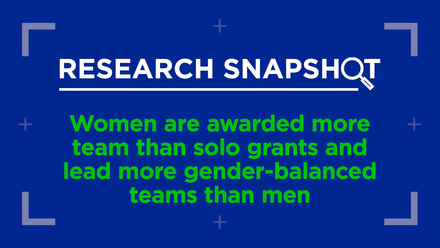How to make a compelling case for internationalisation

As nationalism continues to grow in Europe and higher education budgets decrease, there is no better time to think deeply about why internationalisation is not only important but essential for higher education institutions. During the 2017 EAIE Annual Conference in September, one session offered dedicated space and time for Senior International Officers (SIOs) to reflect on how they convince university leaders to invest in internationalisation. This blog highlights the discussion and some of the compelling arguments for internationalisation, shared by participants at the SIO session.
The American Council for Education Center for Globalization and Internationalization (ACE-CIGE) has a dedicated webpage to this topic: Making the Case for Internationalization that highlights key elements for developing a case statement. Creating a strong set of arguments for internationalisation, based on your strategic plan, can galvanise political support and allies and at the same time mobilise resources. In addition, developing a case statement provides a consistent message for all those individuals working in international activities, but also for university leaders to use for public statements. The website offers a few institutional examples.
A step-by-step guide to making your case
However, crafting a case for internationalisation is a very context-specific exercise; you cannot simply cut and paste arguments used by another institution. All sorts of institutional factors feed into creating a strong set of arguments for internationalisation. Here is a guide to create a compelling case statement:
1.) What is the strategic plan for internationalisation? If no strategic plan exists, what are the international priorities for your institution? What future goals and targets exist for the internationalisation of higher education? From these questions, you should be able to extrapolate key points to highlight.
2.) Gather a group of key allies to discuss and brainstorm why internationalisation is important for your institution.
3.) Draft a document highlighting the key arguments. Be as specific as possible with each statement, adding existing data, research and future strategic aims.
4.) Meet with key stakeholders, not necessarily those you are trying to convince, to receive their feedback on the draft document.
5.) Based on the feedback, finalise a case statement.
6.) Distribute to your staff, allies and key stakeholders, who will help support disseminating a consistent message to university leaders.
7.) If you have support and buy-in from institutional leaders, sharing the case statement with them may help to legitimise international efforts and they may even incorporate the arguments into their own discourse. If you are still trying to garner support and buy-in from an institutional leader, this is when your case statement kicks into implementation mode and it is time to use the compelling cases as key talking points when influencing institutional leaders.
Proven examples from professionals in the field
Going back to the 2017 EAIE Annual Conference session, below are a few selected compelling case statements that were shared by participants. While general in nature, each of these statements needs to be further crafted by adding institutional-specific details.
Employability
- The global job market requires graduates with international and intercultural competencies.
Global knowledge development
- Global issues require common solutions; our strategic partnerships in the following areas contribute to global knowledge development…
Quality
- Internationalisation supports teaching, education and research quality in the following ways…
- International exposure improves teaching, research and services in the following ways…
Collaboration
- Students should have the opportunity to learn and to improve through collaboration and sharing of knowledge.
- Internationalisation facilitates benchmarking – ie learning from peers and sharing best practices.
National agenda/accreditation process
- The internationalisation of higher education is part of the national agenda; our institutional international efforts support the national agenda in the following ways…
- Internationationalisation is encouraged in the national funding formula for higher education in the following ways…
- In some countries, internationalistion is considered a part of the national accreditation process.
Political
- Internationalisation can reduce nationalistic and xenophobic sentiments among students, staff, and faculty by educating and exposing them to different cultures.
Teaching and Learning
- Creating diverse international classrooms leads to symbiotic and intercultural learning among all involved, including the teaching staff, international and domestic students.
Creating a compelling case for internationalisation can help secure resources, build allies, and further develop international efforts and strategies. Additionally, it can be an enriching and introspective exercise to undertake as you continue to advance internationalisation at your institution.






